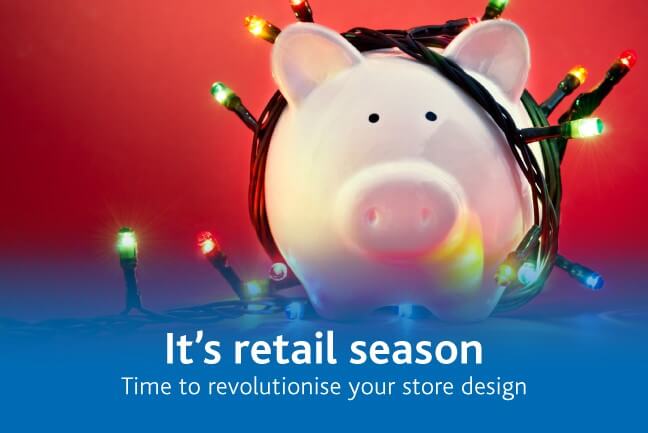It's all eyes on retailers as new season products become available and in the all-consuming lead up to Christmas and the post-Christmas sales. Your retail design and signage warrant attention. Here's how you can revolutionise your store design to make the most of this once-a-year opportunity.


Less Is More
Attention spans are shortening with every 140-character tweet or emoji-filled text message, and your retail signage should reflect that shift. While a banner can be large, its message should be short and to the point. Customers are in a hurry, and they don't want to decipher a hidden message. Concise messages usually carry more emotional weight and clear directions when customers are making quick decisions.

Adapt
Be willing to change your store layout. A consumer's path through the shop is influenced by product placement and store signage. Mix and match the positions of your retail signage to figure out what design works best. If a banner's font is too small to be seen from a distance, place it lower, where consumers will be close enough to read it. If a cut-out display is attracting a lot of attention, move it closer to big-ticket items or impulse buys.

Call to Action
A catchy slogan can connect the customer emotionally with a product, but effective retail signage can transform that emotion into action. Store signage and design should influence customers to take the next step. Promote a product sale or remind the customer why they're buying the product. Wall graphics or banner stands are a great way of showing a consumer's purchase in action instead of simply telling them with text.

Use More Colour
Research shows 52% of consumers don't return to a store if they're not impressed with the overall aesthetics, and 80% think colour increases brand recognition. The same research shows ads in colour are read more often and remembered more accurately than ads in black and white.

Make the Store a Destination
You only need to look at retailers like MECCA Cosmetica or IKEA or even Harley Davidson to see the power of creating a customer experience. They aren't quick stops but destinations to become immersed in and to return to time and time again.